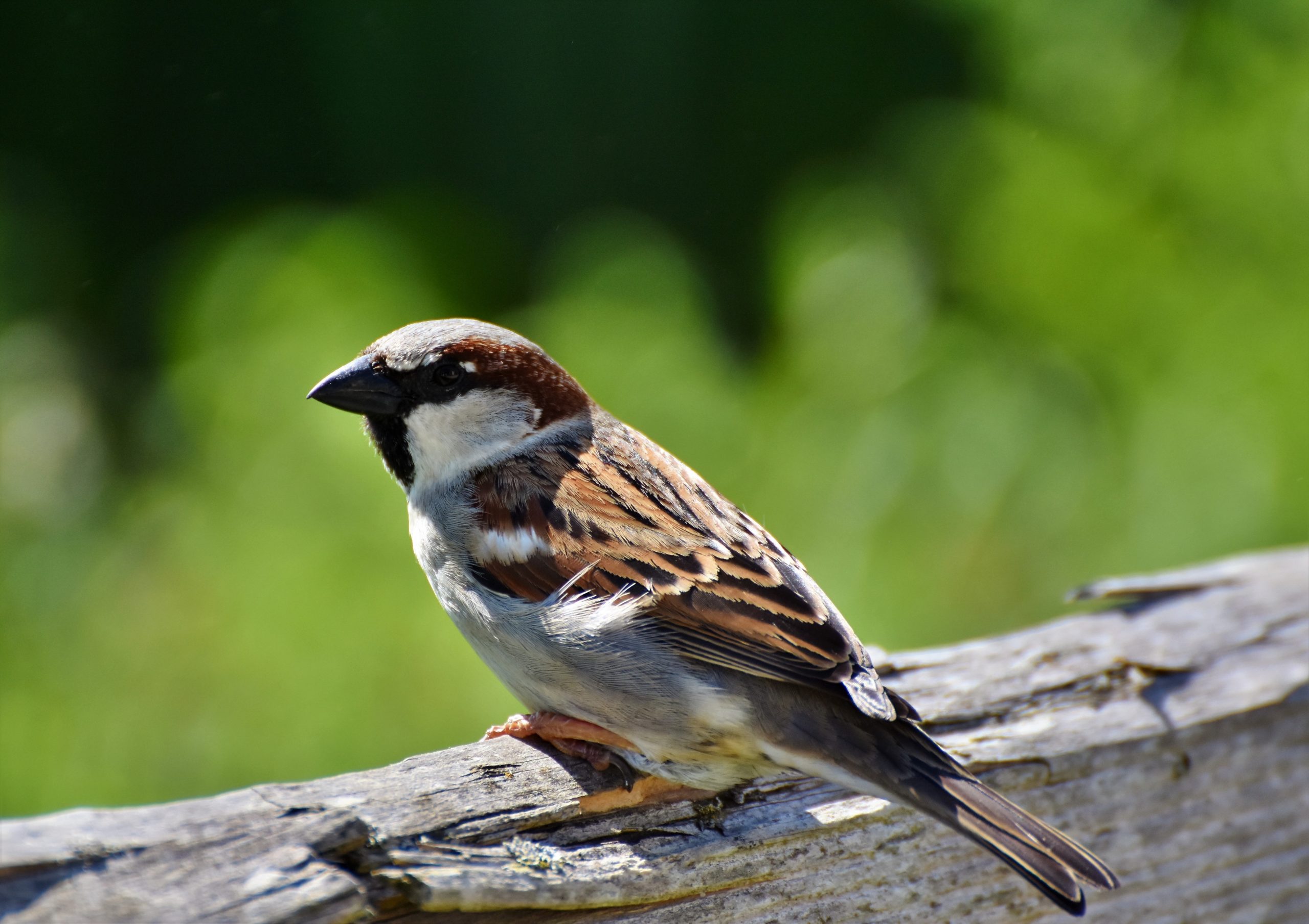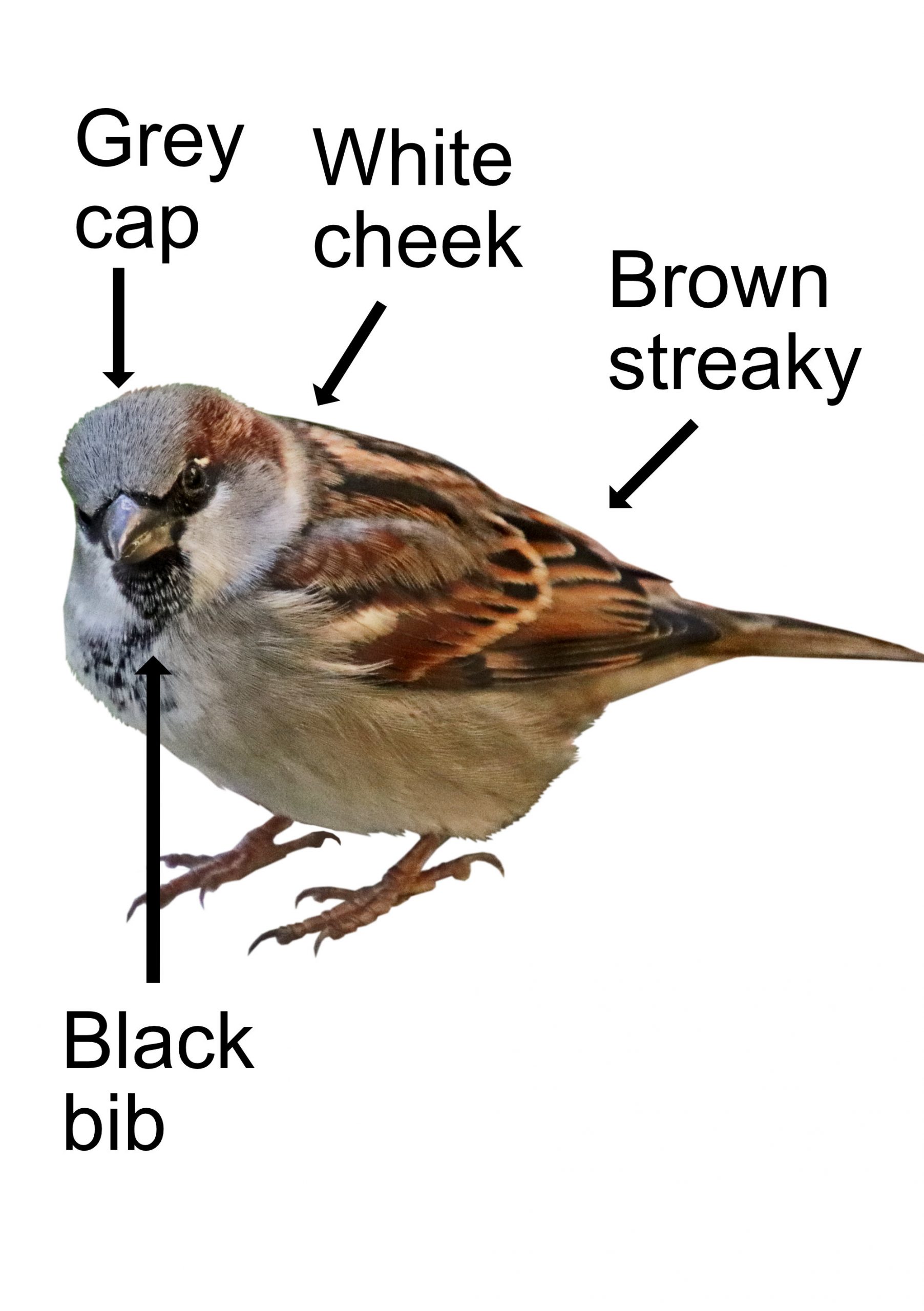
The House Sparrow was originally from central Asia. They are found everywhere except Antarctica, where it is a bit too chilly even when wearing a good shawl. In Greece, Sparrows were symbols of true love and sacred to the goddess Aphrodite no less.
The House Sparrow has a short stubby bill, chestnut brown streaked upper parts, pale unmarked under parts, a brown head with a grey crown, a black throat, pale cheeks, and grey bum. They have a small white wing bar. A colourful dresser - if you like brown. The female and young are a bit duller and lack the male's grey crown. They have a frantic, looping flight before diving into the nearest hedge and becoming invisible apart for the racket they make.

The House Sparrow is hardly musical but very cheerful and chatty. They like a good knit and natter, and form a 'Sparrow Chapel' when flocks gather in their favourite bushes for a good gas. Their very distinctive "chirrup" makes House Sparrows easy to pick out from the other birds.
They are not fussy eaters and will try just about everything, including grain, insects, fat balls, bacon rind and bread crusts, enjoying a good buffet at social events. They hate pigeons and flocks of sparrows will often chase them off as who wants fatty pigeon eating all the food.
House Sparrow pairs usually stay together for life (to stop any tongue wagging). They nest in holes in buildings or in a tasteful nest box. They lay up to 5 eggs which are kept warm by both parents though the female does the larger share. The eggs hatch after 12 days and both parents feed the young. The young are ready to fly after 14 days and can feed themselves 7 days later, wanting to get to the 'all you can eat' buffet as soon as possible. House Sparrows can have up to 4 broods, which is pretty good going! The offspring generally stay in the neighbourhood as they a like to visit grandma and grandpa at weekends.
A widespread resident with 6 million pairs. They are mainly associated with human activity and tend to hang out in farms, houses, and gardens, anywhere where there is a good bit of gossip. For an unknown reason, sparrow numbers have been declining in recent years. Air pollution from cars is thought to be one possible cause. Their Latin name is ’passer domesticus’ which is 'sparrow belonging to a house' (like Ravenclaw).